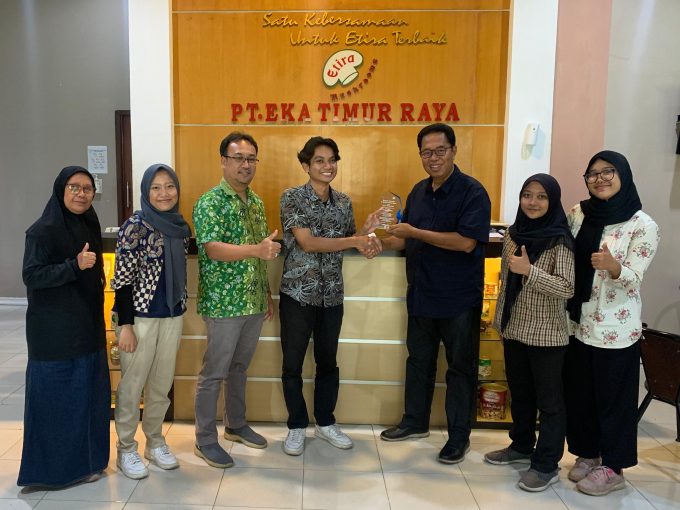
Agricultural Microbiology students from the 2021 cohort at Gadjah Mada University, namely Abdi Cahyo Negoro, Nobela Dhoiriyah Putri Dinar, Salma Nuha Zahirah, and Zulva Nur Aini Hafizhah, have received the valuable opportunity to participate in the 6th semester MBKM internship program for the 2023/2024 academic year at PT Eka Timur Raya (Etira), located in Pasuruan. The MBKM Internship Program was conducted from February to June 2024. PT Eka Timur Raya is a company focused on the production and distribution of button mushrooms (champignon), a high-value commodity exported to various countries. During this internship program, the students were invited to understand and directly engage in various processes of button mushroom production, providing them with in-depth insights into how this product is produced under strict international standards.
The button mushroom production process at PT Eka Timur Raya begins with a very basic stage, namely the production of pure culture and mushroom spawn. The students were involved in the entire process, where they learned laboratory techniques used to produce high-quality pure cultures. Additionally, they also learned the techniques of mushroom substrate production, which is the growing medium for the mushrooms. The substrate used must meet certain criteria to ensure that the mushrooms can grow optimally. Through hands-on practice, the students gained a deeper understanding of the importance of quality control in these early stages of production.
After understanding the basics of production, students also engaged in the mushroom cultivation stage, where they practiced effective and efficient cultivation techniques. In this process, quality control became a primary focus, as the mushrooms produced had to meet high standards before they could be exported. Students were involved in monitoring and testing the quality of the products to ensure that each batch of mushrooms met the specified requirements. They were also given the opportunity to learn about the mushroom canning process, a crucial step in ensuring that the mushrooms could be properly stored and distributed to international markets. Additionally, students learned about the marketing strategies employed by PT Eka Timur Raya to position their products in the global market, providing insights into how the international market operates and how products can be successfully marketed abroad.
Beyond mushroom production, PT Eka Timur Raya also provided students with the opportunity to learn about wasabi cultivation, another high-value commodity managed by the company. They were taught how to care for and manage wasabi plants, which require very specific environmental conditions. Furthermore, students were introduced to waste processing techniques and organic fertilizer production. In this regard, students learned how production waste could be reused in the form of organic fertilizers, an approach that is not only environmentally friendly but also economical. Through this internship program, students not only gained technical skills but also understood the importance of sustainability and efficiency in the agricultural industry. This hands-on experience became a valuable asset for them in facing the competitive job market while reinforcing the knowledge they had acquired in the classroom. This synergy is a strong testament to achieving SDG 4: Quality Education and SDG 17: Partnerships for the Goals.
Author: Abdi Cahyo Negoro
